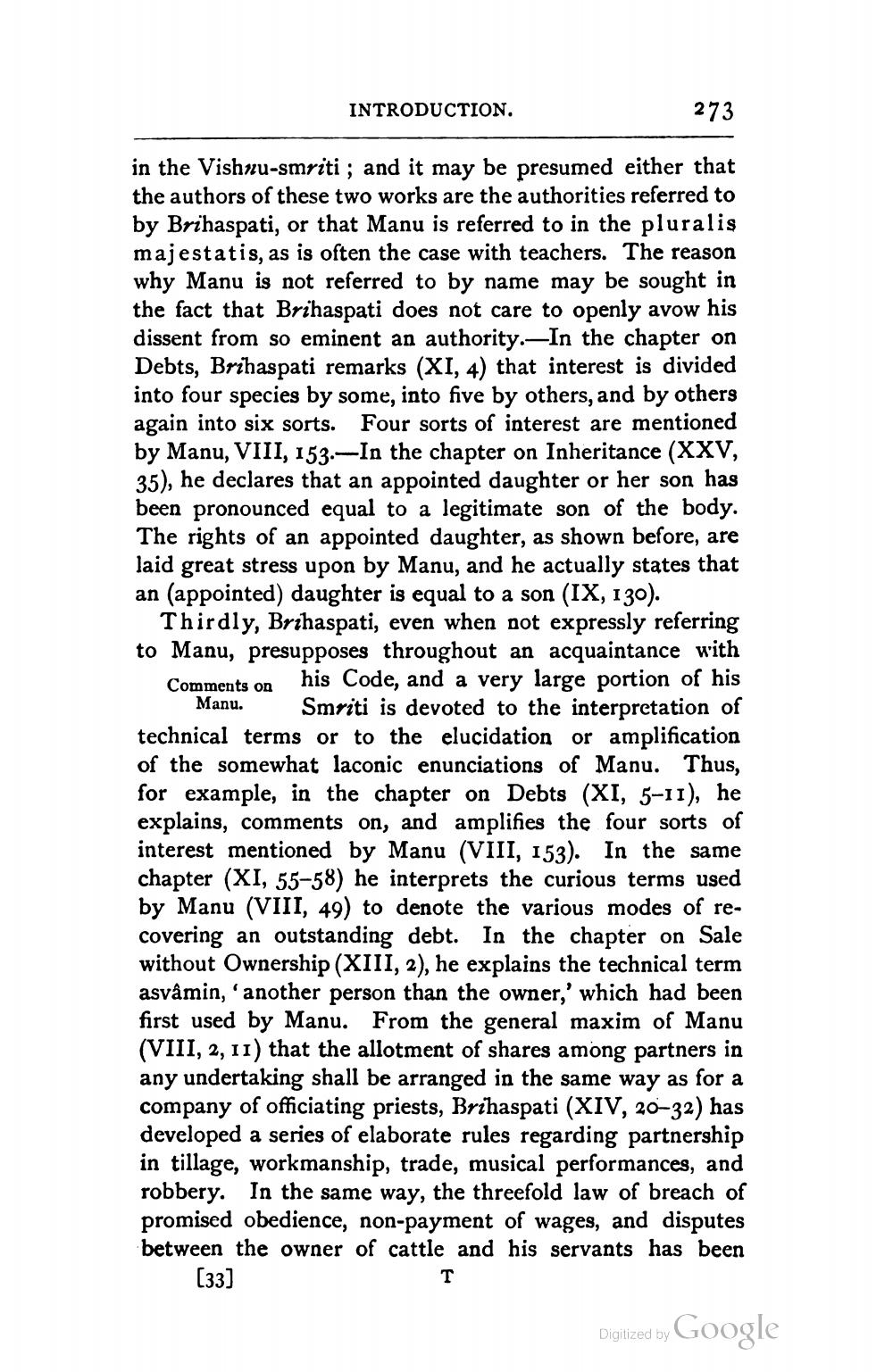________________
INTRODUCTION.
273
in the Vishnu-smriti ; and it may be presumed either that the authors of these two works are the authorities referred to by Brihaspati, or that Manu is referred to in the pluralis majestatis, as is often the case with teachers. The reason why Manu is not referred to by name may be sought in the fact that Brihaspati does not care to openly avow his dissent from so eminent an authority.-In the chapter on Debts, Brihaspati remarks (XI, 4) that interest is divided into four species by some, into five by others, and by others again into six sorts. Four sorts of interest are mentioned by Manu, VIII, 153.—In the chapter on Inheritance (XXV, 35), he declares that an appointed daughter or her son has been pronounced equal to a legitimate son of the body. The rights of an appointed daughter, as shown before, are laid great stress upon by Manu, and he actually states that an (appointed) daughter is equal to a son (IX, 130).
Thirdly, Brihaspati, even when not expressly referring to Manu, presupposes throughout an acquaintance with Comments on his Code, and a very large portion of his
Manu. Smriti is devoted to the interpretation of technical terms or to the elucidation or amplification of the somewhat laconic enunciations of Manu. Thus, for example, in the chapter on Debts (XI, 5-11), he explains, comments on, and amplifies the four sorts of interest mentioned by Manu (VIII, 153). In the same chapter (XI, 55-58) he interprets the curious terms used by Manu (VIII, 49) to denote the various modes of recovering an outstanding debt. In the chapter on Sale without Ownership (XIII, 2), he explains the technical term asvâmin, another person than the owner,' which had been first used by Manu. From the general maxim of Manu (VIII, 2, 11) that the allotment of shares among partners in any undertaking shall be arranged in the same way as for a company of officiating priests, Brihaspati (XIV, 20–32) has developed a series of elaborate rules regarding partnership in tillage, workmanship, trade, musical performances, and robbery. In the same way, the threefold law of breach of promised obedience, non-payment of wages, and disputes between the owner of cattle and his servants has been
[33]
Digitized by Google




